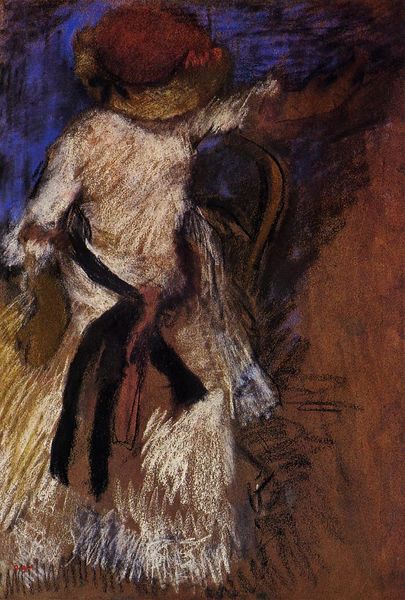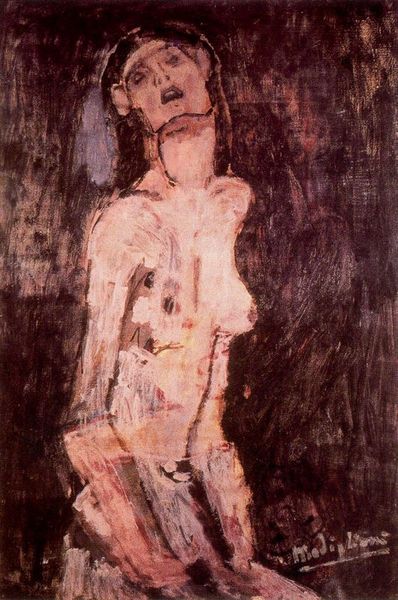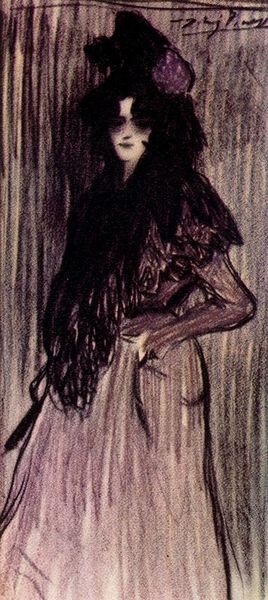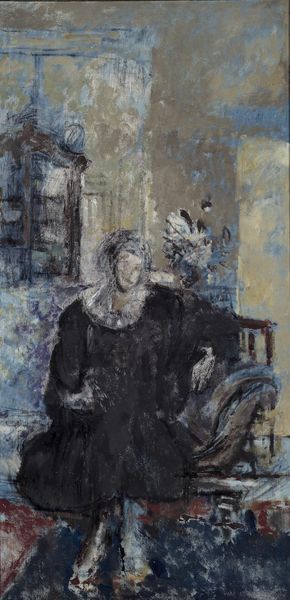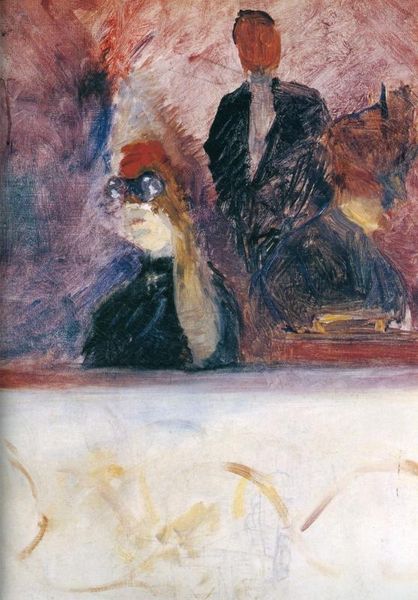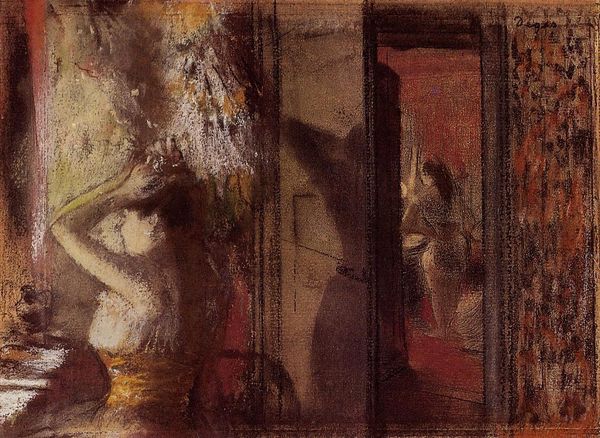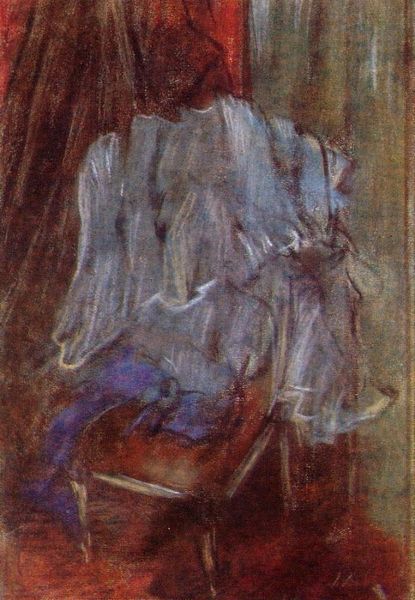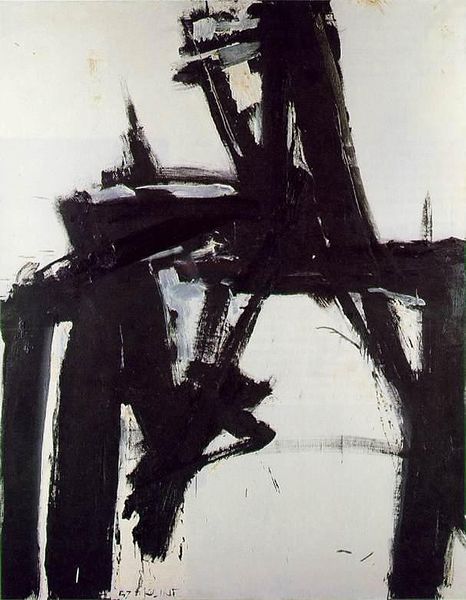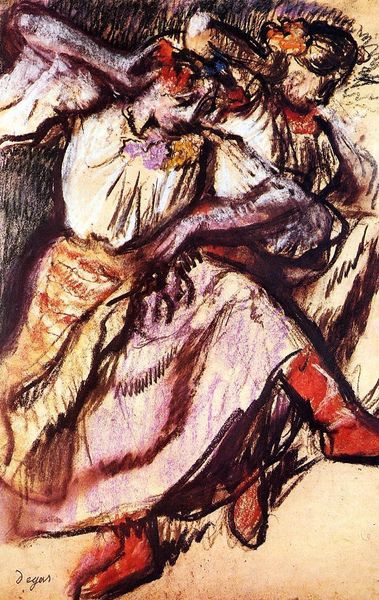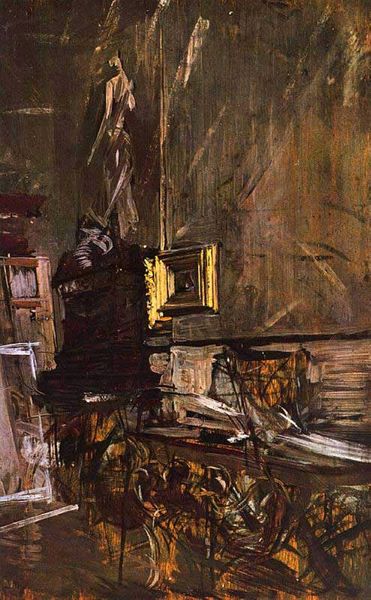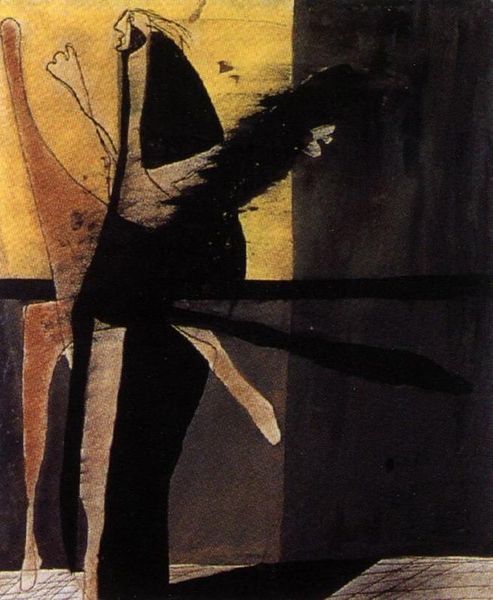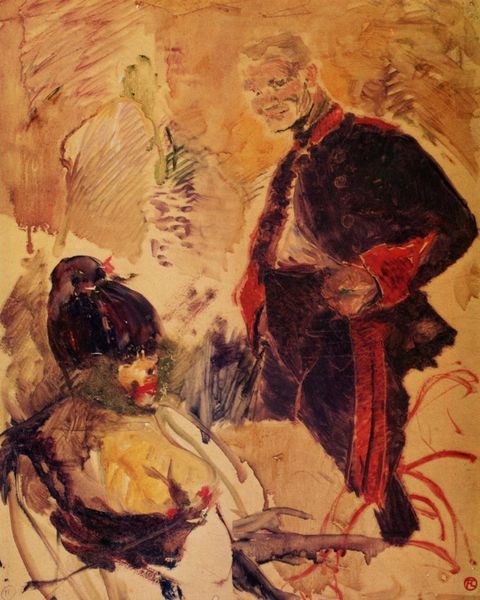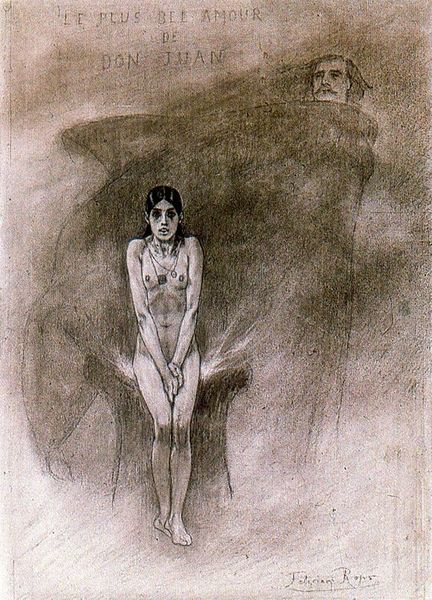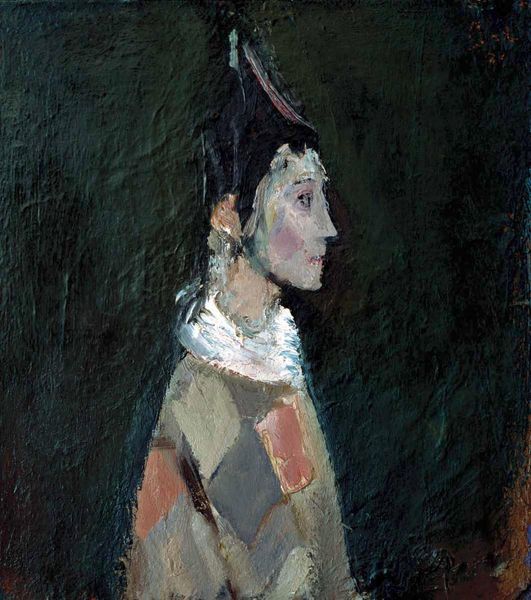
Woman in Black who Watches the Pastel of Signora Emiliana Concha de Ossa 1888
0:00
0:00
oil-paint
#
portrait
#
impressionistic
#
impressionism
#
oil-paint
#
furniture
#
figuration
#
possibly oil pastel
#
genre-painting
#
italy
#
female-portraits
Copyright: Public domain
Editor: Here we have Giovanni Boldini’s “Woman in Black Who Watches the Pastel of Signora Emiliana Concha de Ossa” from 1888, oil on canvas. The contrast between the vivid pastel portrait and the stark silhouette of the woman in black immediately grabs you. How do you interpret this piece? Curator: The painting offers a compelling commentary on female representation and spectatorship in the late 19th century. Consider the pastel: Signora Concha de Ossa is presented as an object of beauty, poised and passive, conforming to societal expectations of women at the time. Now, juxtapose that with the woman in black, whose identity is concealed, effectively rendering her an observer. What does the starkness of her silhouette convey? Editor: Maybe a sense of mystery? Or a kind of power in anonymity? It almost feels like she's challenging the portrait, questioning its constructed image. Curator: Precisely! Think about the social context: This was a period of emerging feminist discourse. Boldini seems to be engaging with the complex dynamics between visibility and invisibility, objectification and agency. The painting could be seen as a subtle critique of the gaze, prompting us to question who has the power to look and who is being looked at. Do you think this subverts or reinforces existing power structures? Editor: I hadn't thought of it that way, but now I see the silhouette as almost defiant. Maybe Boldini is suggesting a silent resistance to those rigid societal roles for women, using this contrast to bring the issue to light. Curator: It's a painting that reveals more with each viewing, isn't it? It certainly invites dialogue around representation and female identity, both then and now. Editor: Absolutely, this gives a whole new perspective on portraits beyond the surface.
Comments
No comments
Be the first to comment and join the conversation on the ultimate creative platform.
